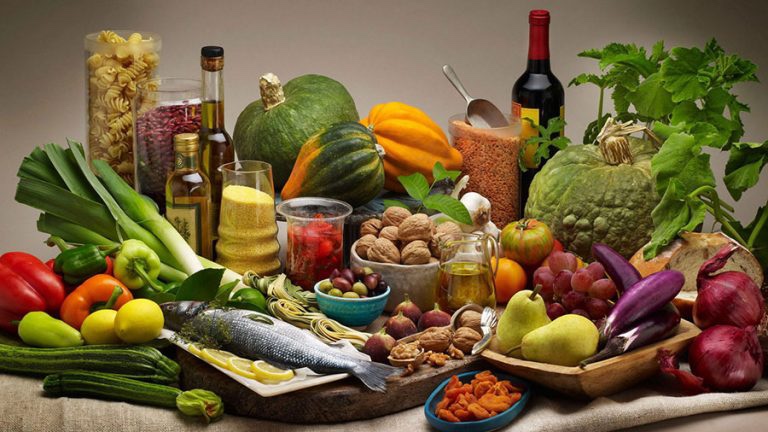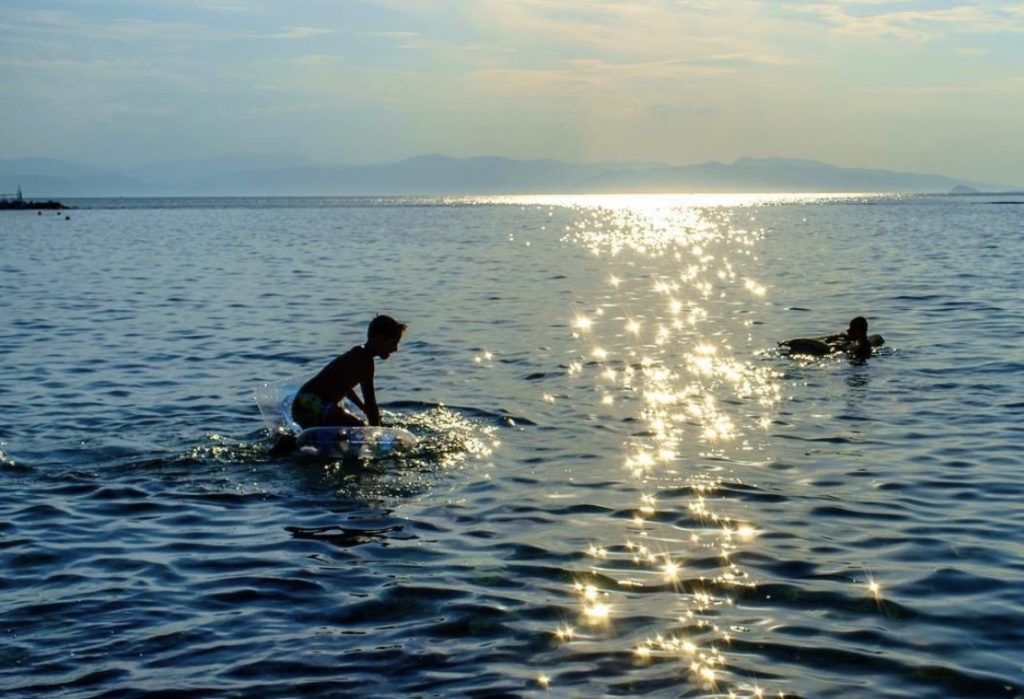
A Modern Greek Tragedy
My friend Jim, who worked with me in Patelli’s taverna in the 70s, used to be chief Greek salad maker, among other things, and I waited on tables. We served up all the usual stuff: moussaka, grilled octopus, fish, bean stews etc, although Patelli’s wife, Eleni, cooked more authentic food, which we had the pleasure of sharing with them in their home on one occasion. The restaurant food was less so but still pretty much the Mediterranean diet.
One of the things I’ve noticed since being here is the extent to which some of the slender young men we knew back then are now considerably less so. Being polite I refer to them as well-fed but, actually, that’s a misnomer on a grand scale because there’s nothing well about it. Poorly-fed is more accurate. On that theme, the other day Jim shared a truly shocking statistic about obesity on Crete, for which there’s no more accurate description than the title of this post.
The population of the island in the 1970s, when I first came here, was one of the healthiest in the world. This was due to consumption of the Mediterranean diet but the island has since been transformed and is now one rife with obesity: between 1970 and 2010 an average Cretan’s weight rose by a massive 20 kg. And exercise levels dropped.
As professor of surgery at the University of Crete, John Melissas, put it, albeit it a few years ago now: “Unfortunately in the last 40 years the most healthy people worldwide in 1970, became the most obese in Greece and Europe in 2010“.
That’s Crete he’s talking about, and just in 40 years. It’s an astonishing fall in the fortunes of an island’s people, and at a time when, more generally, most would probably agree that their lives have improved. And there, in part, lies the answer.
Before coming here in the 70s I can remember reading that the average income of a Cretan peasant (the author’s term, not mine), was only a few hundred US dollars. I don’t know the source of the figure or the actual date to which it referred but, assuming that it was reasonably accurate, you only have to think of the changes that have occurred since to see a picture emerging. Back then people were poor but relatively healthy because they were eating simply but well – the Mediterranean diet. And then things changed.
Financial fortunes improved due to improved agricultural practices and a year on year spike in the number of tourists. Just consider the transformation in the lives of a well-placed, tourist-friendly Cretan village or town. In the seventies they had little in relative terms and ate as poor people did, because many of them were. Today they have plenty and it shows, not just in material prosperity but in girth. I’m not suggesting that every Cretan is obese, far from it, and neither is it a phenomenon unique to any particular place on Earth, but there’s been a global seismic shift. In the UK, for example, in 1980 only 7 per cent of men and women were obese – in 2018 it was 28 per cent.
What we eat now is a greater cause of disease and death in the world than either tobacco or alcohol. In 2015 around 7 million people died from tobacco smoke, and 2.75 million from causes related to alcohol, but 12m deaths could be attributed to ‘dietary risks’, such as diets low in vegetables, nuts and seafood, or those high in processed meats and sugary drinks.
The sharp focus of this phenomena on the population of an island, and Crete’s rapid relegation from one of the healthiest places on earth to one of the worst, is a modern Greek tragedy by any measure. But it’s one that’s playing out everywhere and there’s no easy answer.
Sadly, it seems that cheap, fast food rules and the mighty processed food industry and its colossal marketing budget, is a significant part of the problem. Public health policy everywhere needs to face up to and address the long term cost of leaving things to them. Without the adoption and meaningful application of workable, proactive policies by governments everywhere the many and rising costs of poor dietary health can only get worse. There’s more to it than that, I know, but you have to start somewhere. If dirt cheap highly processed, unhealthy food is one of the costs of prosperity, it’s surely not a price worth paying, although it’s a tricky knot to untie.
Waiters on wheels won’t help, amusing though it was to encounter one last night. The video below shows how table waiting in Sfakia’s once sleepy harbour’s done today – that’s how my food came. Same harbour different times. It’s taking the idea of fast food to new levels but perhaps it would be better to take a step or two backwards in order to take us forwards and out of this foody mess.
Leaving things to the market clearly doesn’t work, so why not restrict the sale of unhealthy foods, or subsidise fruit and vegetables to make them more affordable? It’s not about personal choice, to which governments often refer when considering the problem, because you can’t choose a healthy diet if you can’t afford it.
Sorry – this post was about Crete and has turned into a bit of a rant. But Crete’s tragedy should be an example to us all of just how screwed up things can get when a society takes its eye off the ball.
Footnote
Yesterday I shared an early evening raki with Giorgis and during the thirty minutes or so that we chatted several groups of children passed by. They were heading down the hill to a community facility, which I’ve passed often and where, most evenings, there’s something going on for different age groups. The previous evening I’d seen older kids engaged in some sort of martial arts exercises and, as we sat there, much younger children gathered, all dressed in sporty gear as healthy looking parents stood around in small groups keeping an eye on things.
Later I sat in one of the harbour tavernas and watched children and parents splashing around in the bay, doing somersault dives off the harbour wall and obviously having a wail of a time. They all looked pretty healthy too.

Conversely, the day before I’d waited for a boat on the quay in Loutro just along the coast and seen a portly little boy, probably aged six or seven. He’d passed by in one direction eating a huge ice cream, and about twenty minutes later in the other with his hands in one of those huge bags of crisps you can buy into which he could almost have fitted his head.
Since posting about the shocking rise in obesity on Crete I’ve been thinking about what I’d found online on the subject, all of which was a good ten years old and referred to the tragic changes that occurred in the forty years between 1970 and 2010. I’ve since tried to find more recent stuff to see if there have been changes but there isn’t much that’s current. I did, however, find a Euronews piece from May of this year here. It’s headline is ‘UK and Greece are among Europe’s worst countries for obesity’, which is depressing, but it then goes on to look at what’s being done in each of the two countries to address the issue. Not enough is the short answer, but there are at least some positive signs.